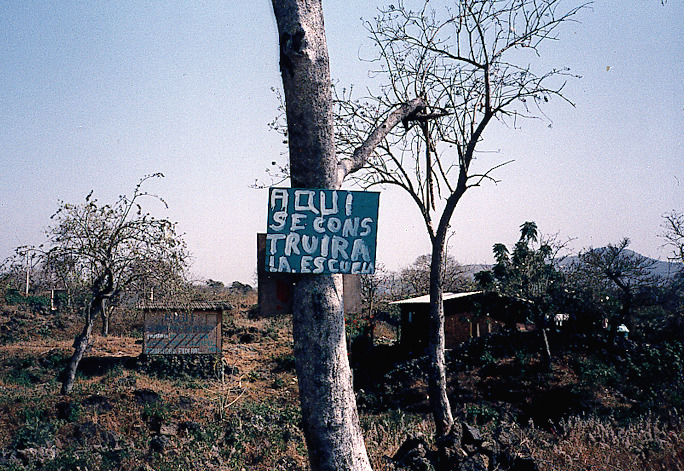
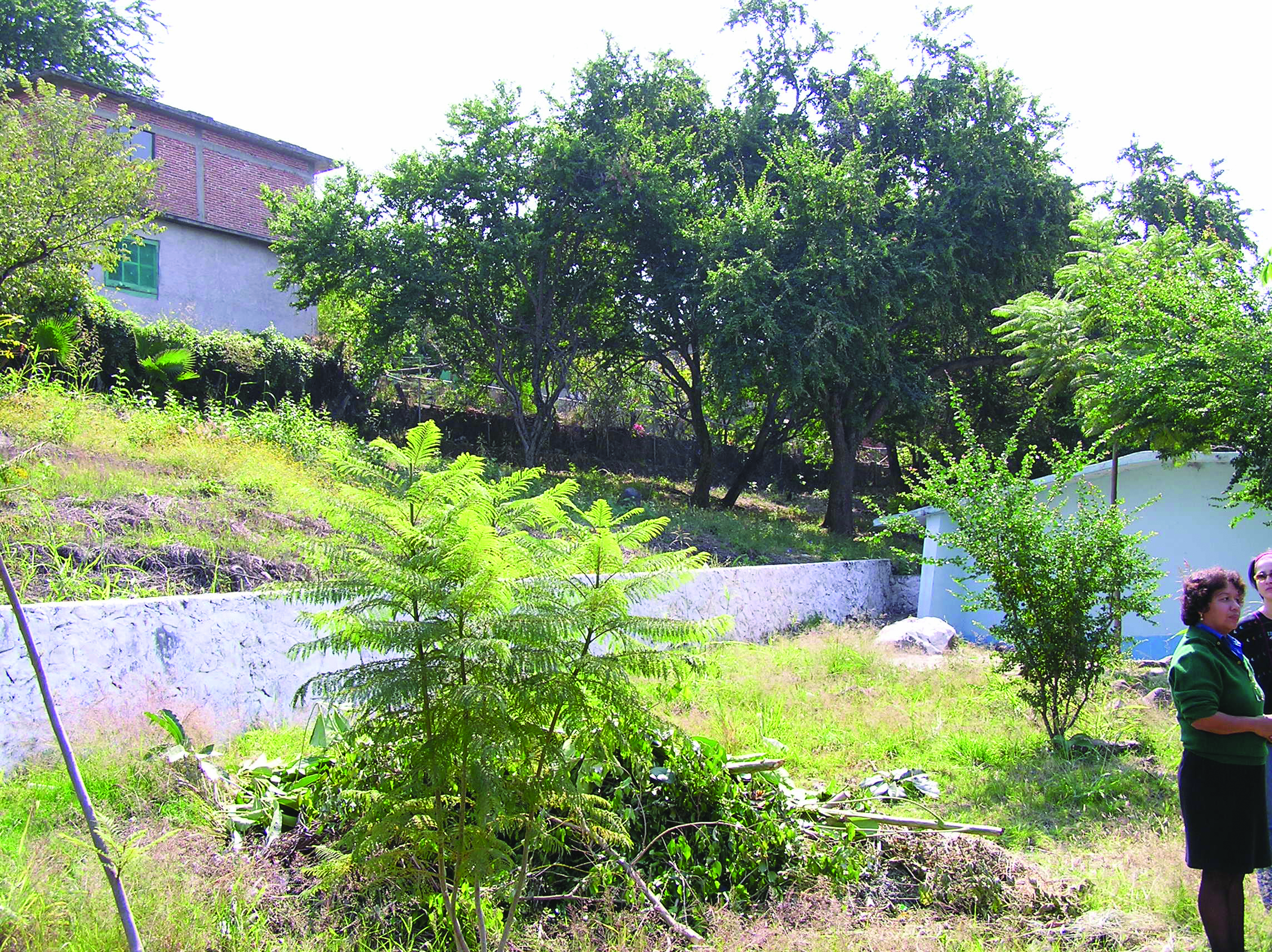
left: A sign reading “a school will be built here” marks the site of one of the Global Community Studio’s first projects in Mexico.
right: The narrow, rocky site of the Jose Maria Morelos Elementary School dining hall before construction.
| Location | Jiutepec, Morelos, Mexico |
| Date | 2004 |
| Client | Municipality of Jiutepec |
| Design Center | BASIC Initiative, College of Architecture and Urban Planning, University of Washington |
| Design Team | Sergio Palleroni with students and faculty of the Global Community Studio |
| Electrical/Mechanical Engineer | Javier Castellanos |
| Solar Consultant | Antonio Cuellar, SOLAIRD AG |
| Major Funding | COSTCO Mexico and US; Municipality of Jiutepec, Morelos, Mexico; Communidad AC; BASIC Initiative |
| Cost | $67,200 |
| Area | 3,283 sq. ft/305 sq. m |
When architect Sergio Palleroni and his students arrived at the site of their first design/build project in Mexico, they were greeted only by a simple sign stating, “A school will be built here.”
“We sort of sat around and wondered what to do,” Palleroni remembers. Then a woman came around with oil and a taco drum and began making tortillas for the group. “The students began talking with her and forming ideas. After this first exchange of ideas we decided that we should have the design process happen in a public place. So every time we were ready to exchange with the community we brought all our drawings up to the tortilla shop and posted them there.” This small incident says much about Palleroni’s approach and the work of the Global Community Studio at the University of Washington.
In 1995 Palleroni, who now teaches at University of Texas at Austin, founded what would become the BASIC Initiative with fellow University of Washington professor Steve Badanes. Since then the Global Community Studio, one of three program areas of the BASIC Initiative, has completed dozens of projects, from schools to libraries to housing to projects that address a broader need for infrastructure, such as roads and environmental projects. Much of the studio’s work has been centered in Mexico’s free-trade industrial zones, where the effects of globalization can be seen and felt.
The José Maria Morelos Elementary School Solar Kitchen is just one example of how the studio has managed to do just that. As part of a nutritional program students were asked to build a kitchen and dining hall on a narrow, steep slice of land behind a the existing school. “We were trying to help the mothers who set up their stands [outside the school] everyday to feed their kids,” Palleroni explains. “The University of Seattle brought in strategies of nutrition, and we worked with the mothers to help them improve their diets and offer them a different way of cooking, without using fossil fuels, that they could later use in their own kitchens.”
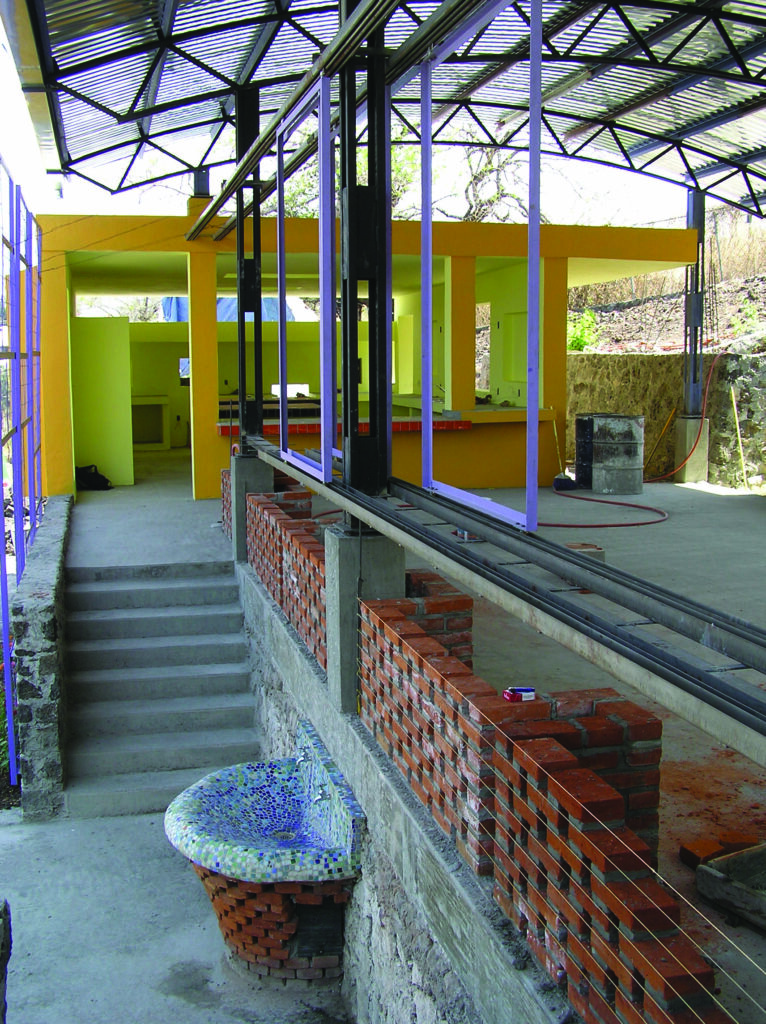
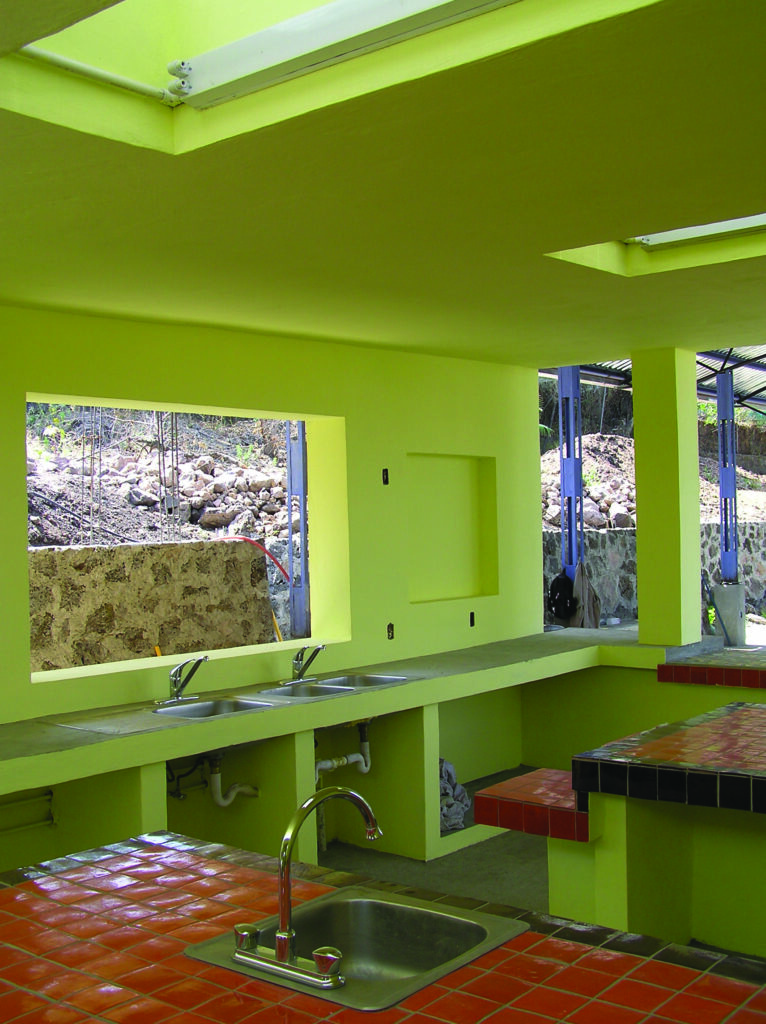
left: View of the kitchen and dining hall during construction. The basin is decorated with a mosaic of tiles made by local craftsmen. Water from the basin irrigates the school’s garden.
right: Skylights fill the interior of the school kitchen with light.
Working with the community, students imbedded the kitchen into the hillside. As with all the studio’s projects, students were required to include strategies for on-site water harvesting and waste treatment. A small basin at the dining hall entrance encourages children to wash their hands before eating, and gray water from the basin helps nourish a small garden that grows food for the school. By far the most ingenious aspect of the project is a solar dish made from vanity mirrors and recycled bicycle parts that heats the ovens. The dish radiates the sun’s rays onto the kitchen’s hearth, generating 2,000 ̊F (1093 ̊C) of heat. “So it cooks,” Palleroni says.
The solar kitchen is just one of many projects in which the Global Community Studio has created opportunities for students to engage in a dialogue and rethink the role of the architect in an increasingly interconnected world. Each project invites students to discover for themselves not just what makes a building sustainable, but what makes a community sustainable.
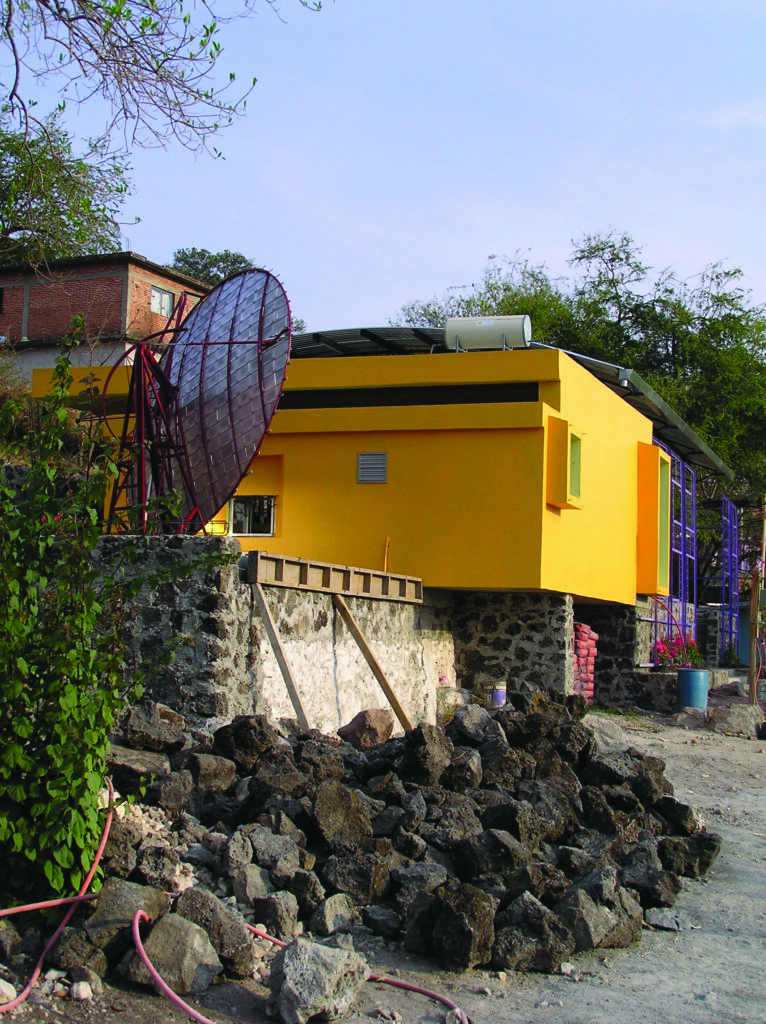
A solar panel made of recycled vanity mirrors and bicycle parts directs rays toward the school’s ovens. All photographs Sergio Palleroni/UW BASIC
“We often live and work in the United States unconscious that the way we live, the economic policies we are establishing, have a tremendous impact on the rest of the world. It’s transforming the rest of the world in ways that are irreparable. I realized I needed to take students out of the United States into these areas so they could see how they could be rethinking their profession as designers—to become citizens of the world, to be aware of the social, cultural, environmental impact of architecture. ”
Sergio Palleroni, architect
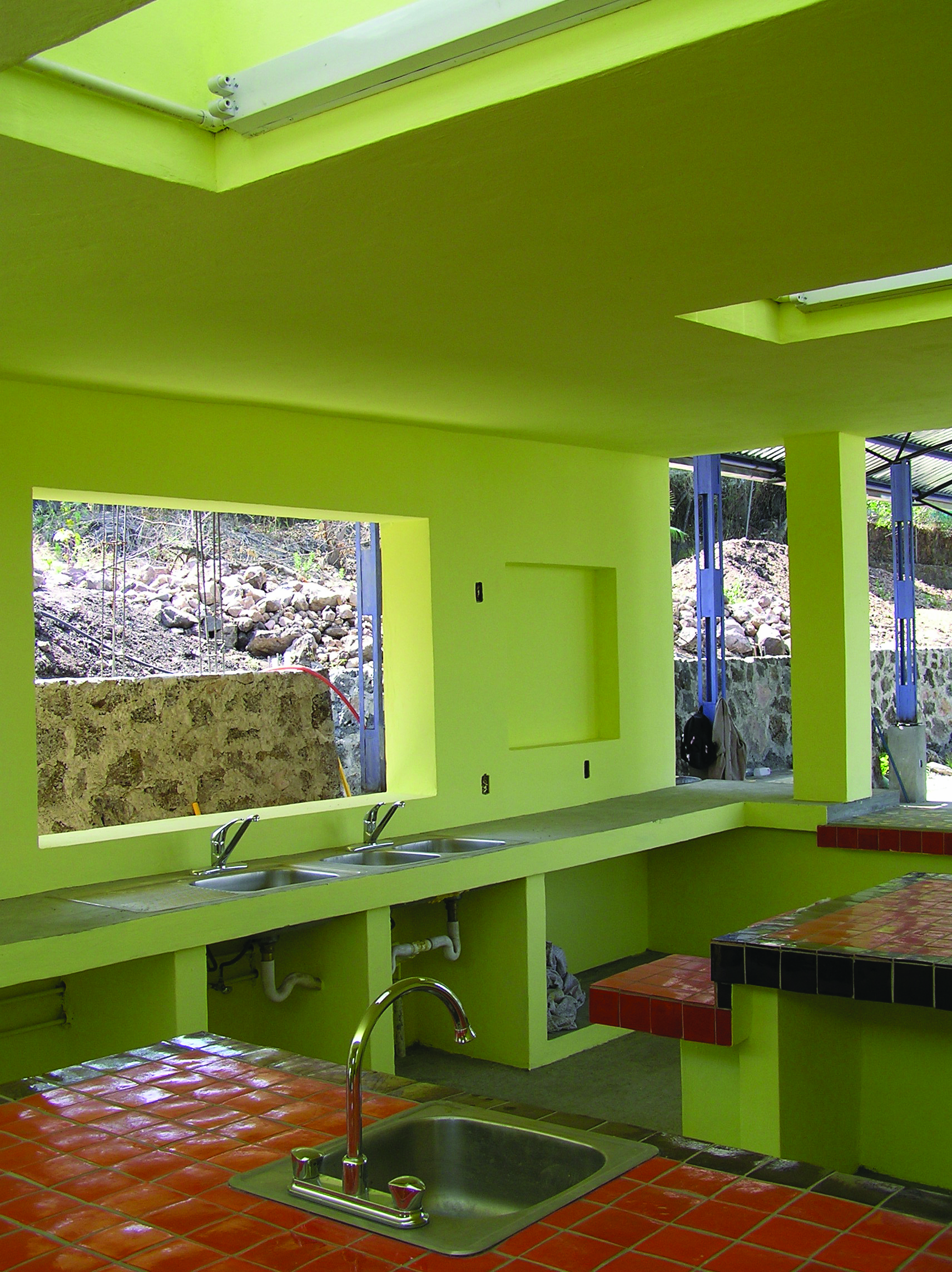
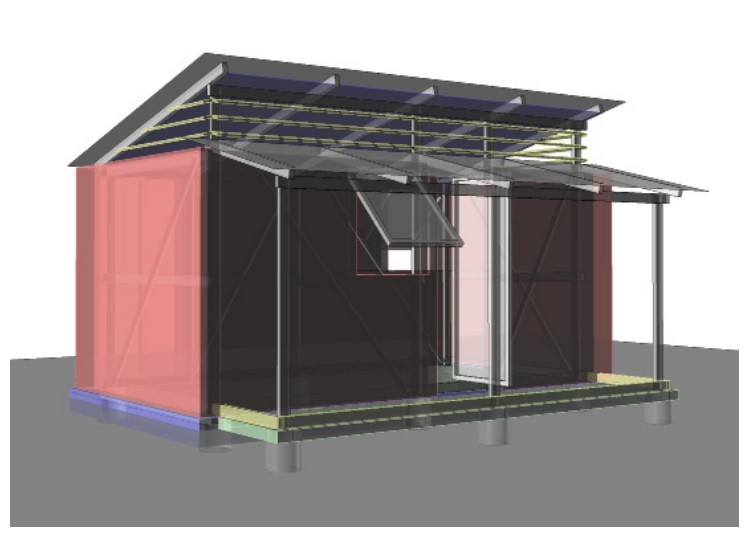
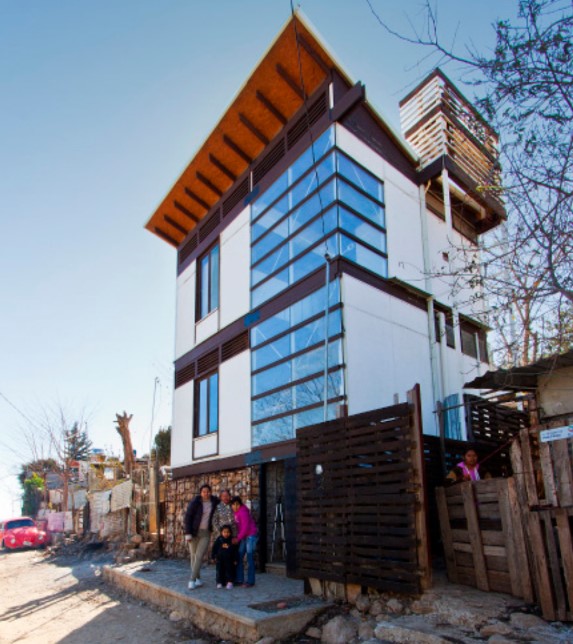
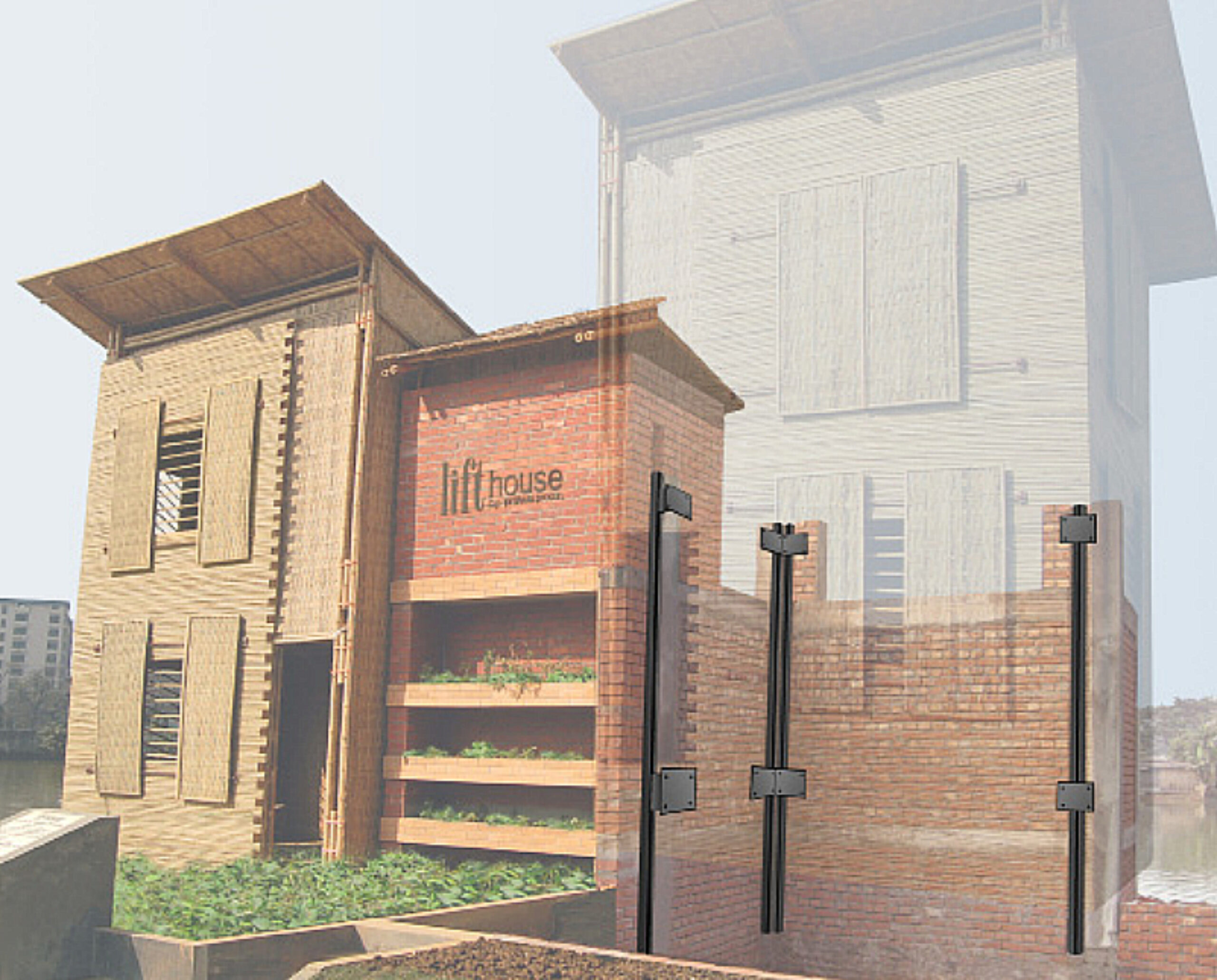

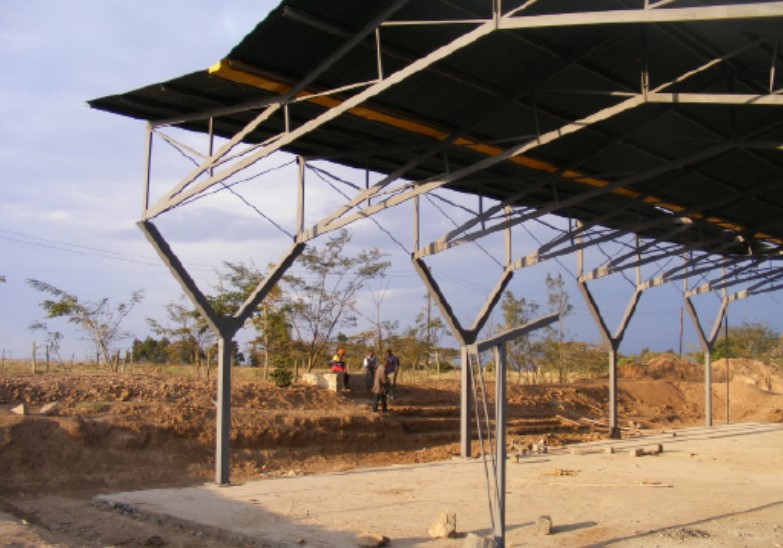
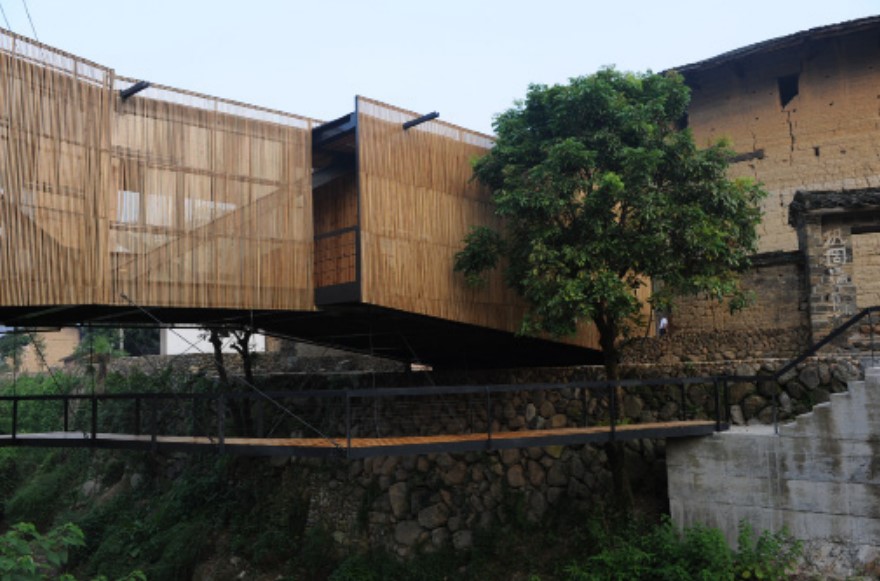
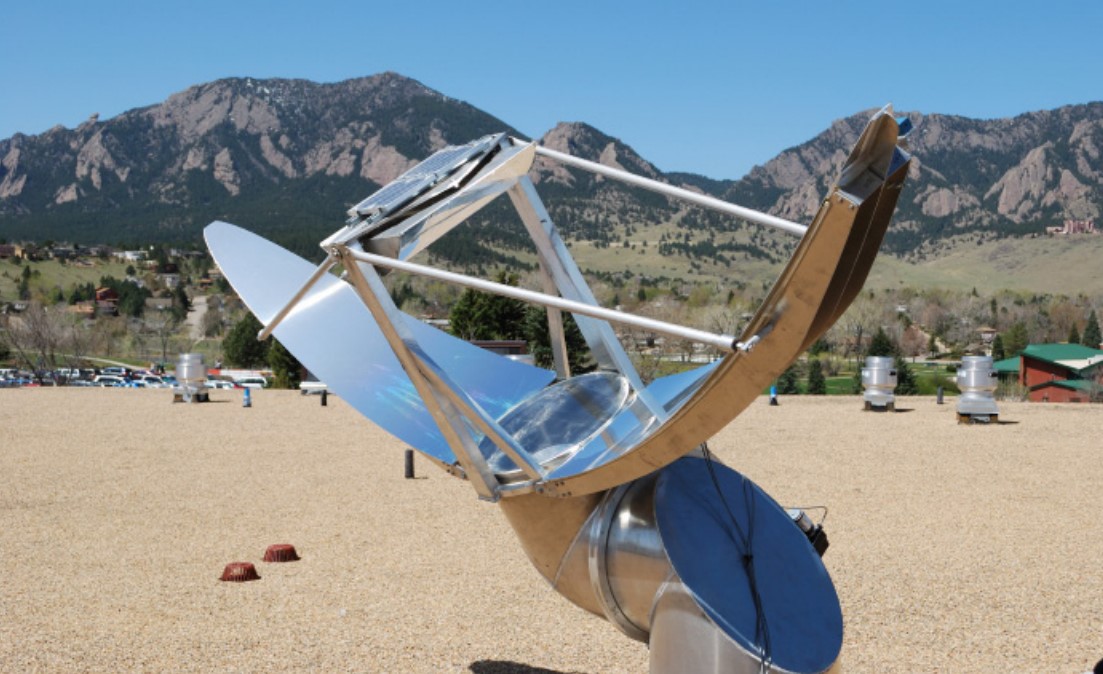
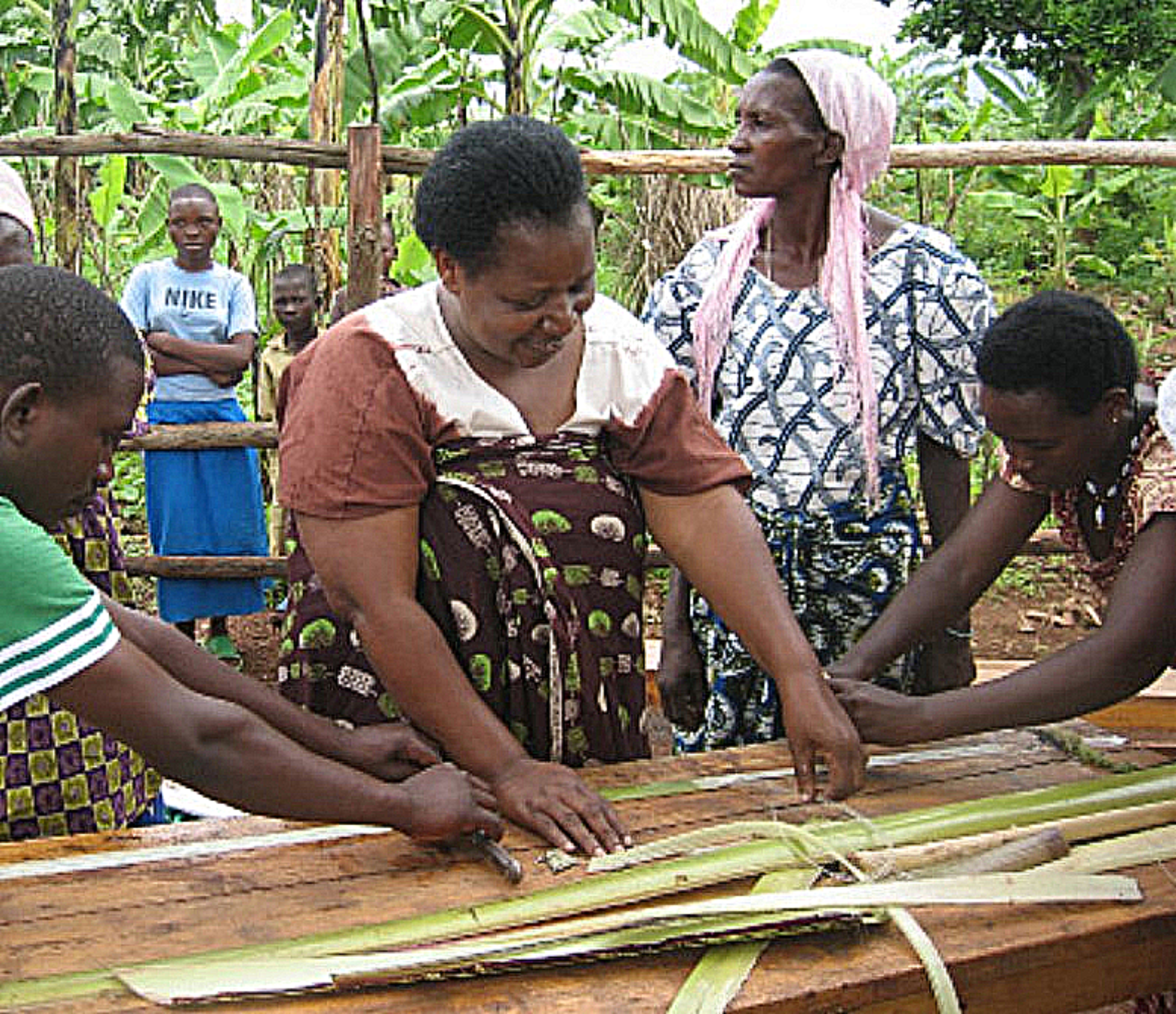
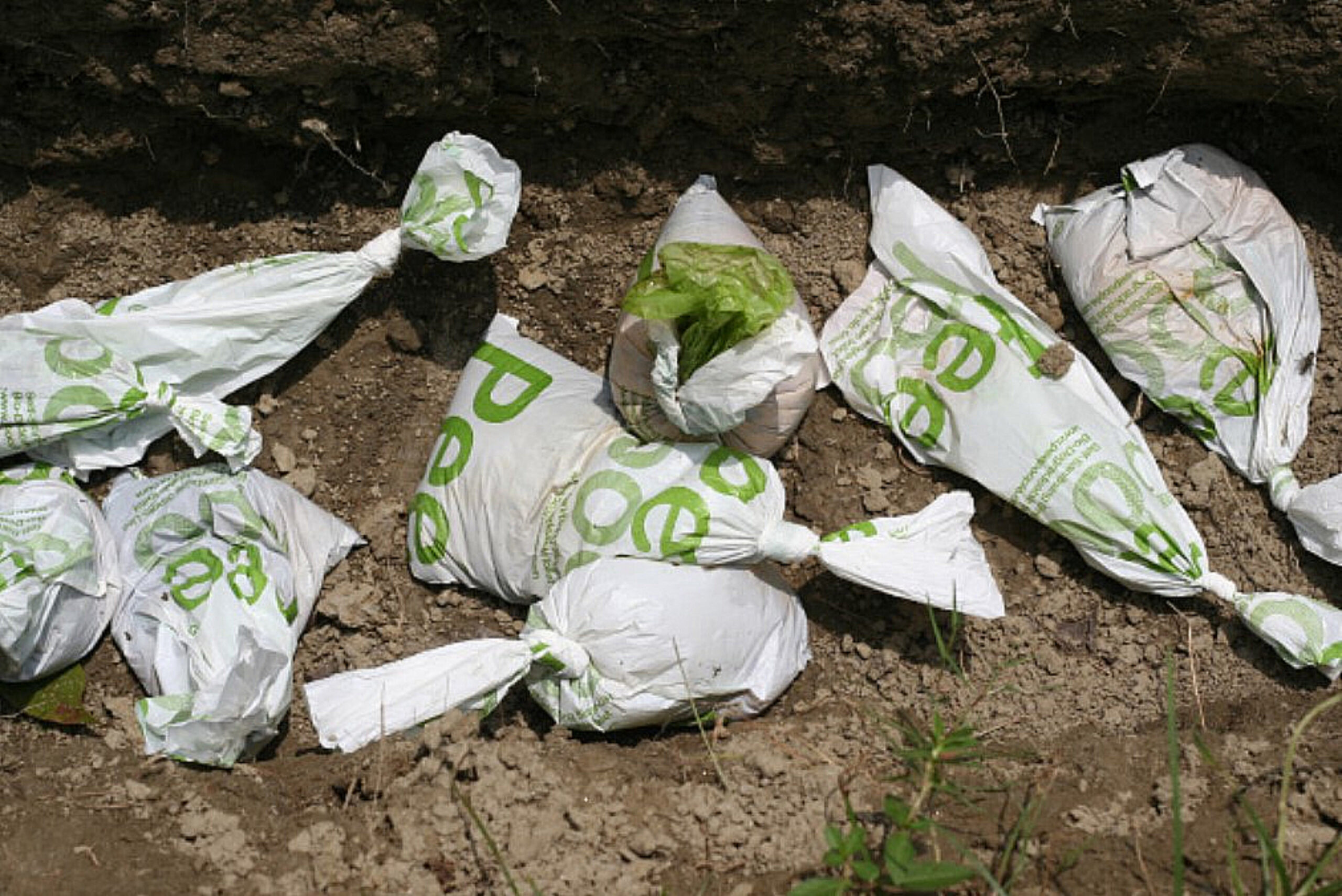
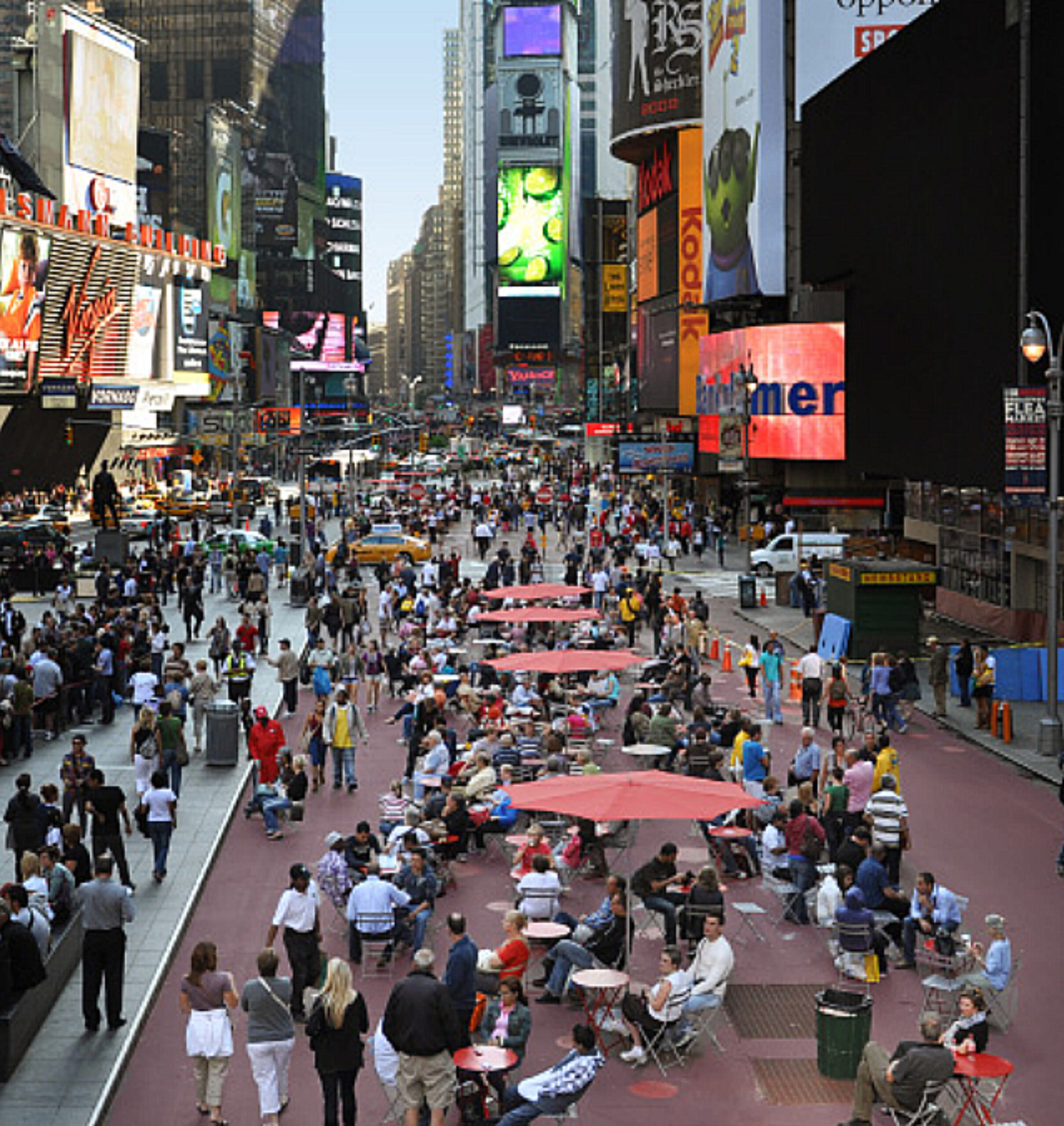
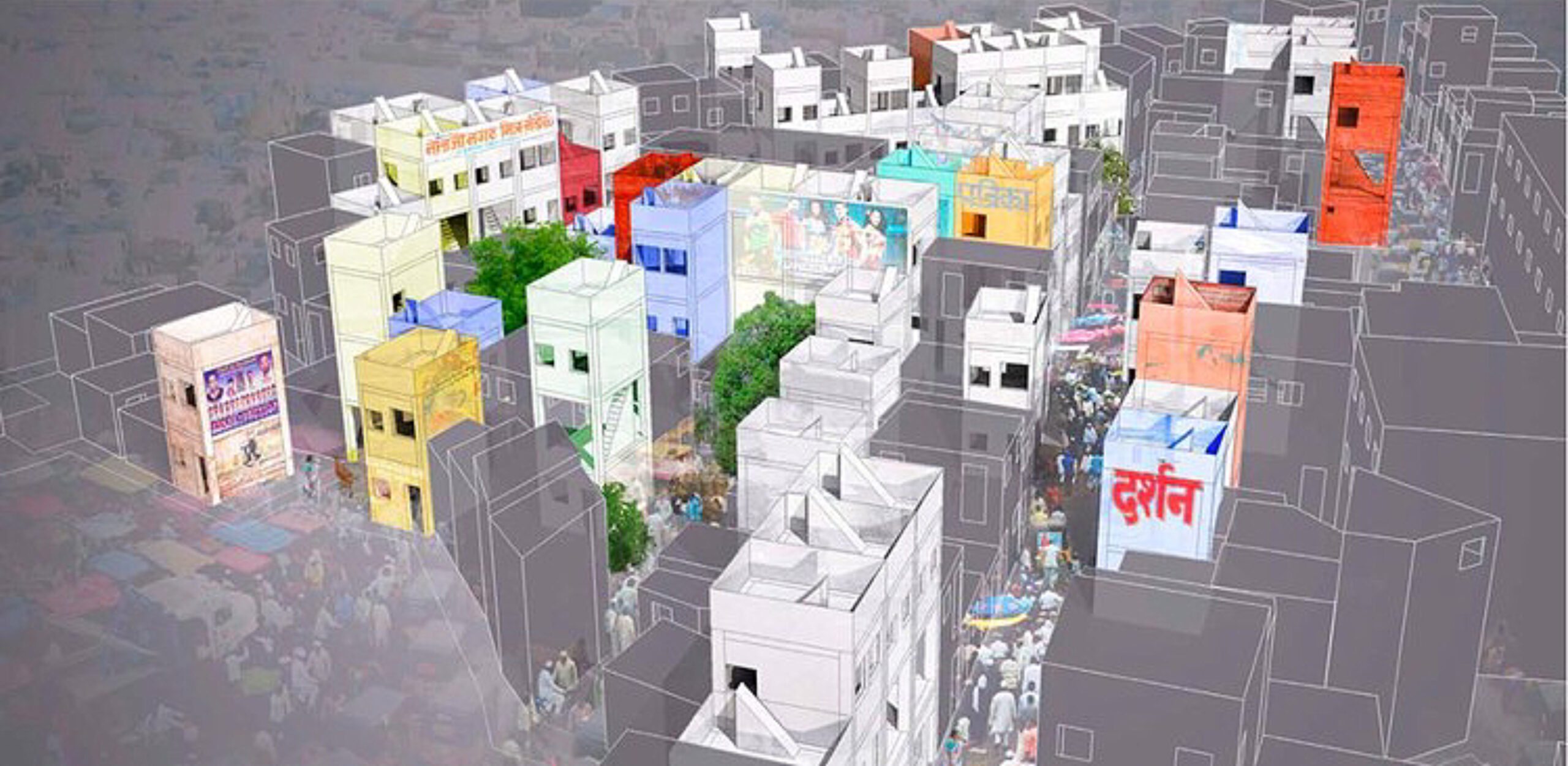

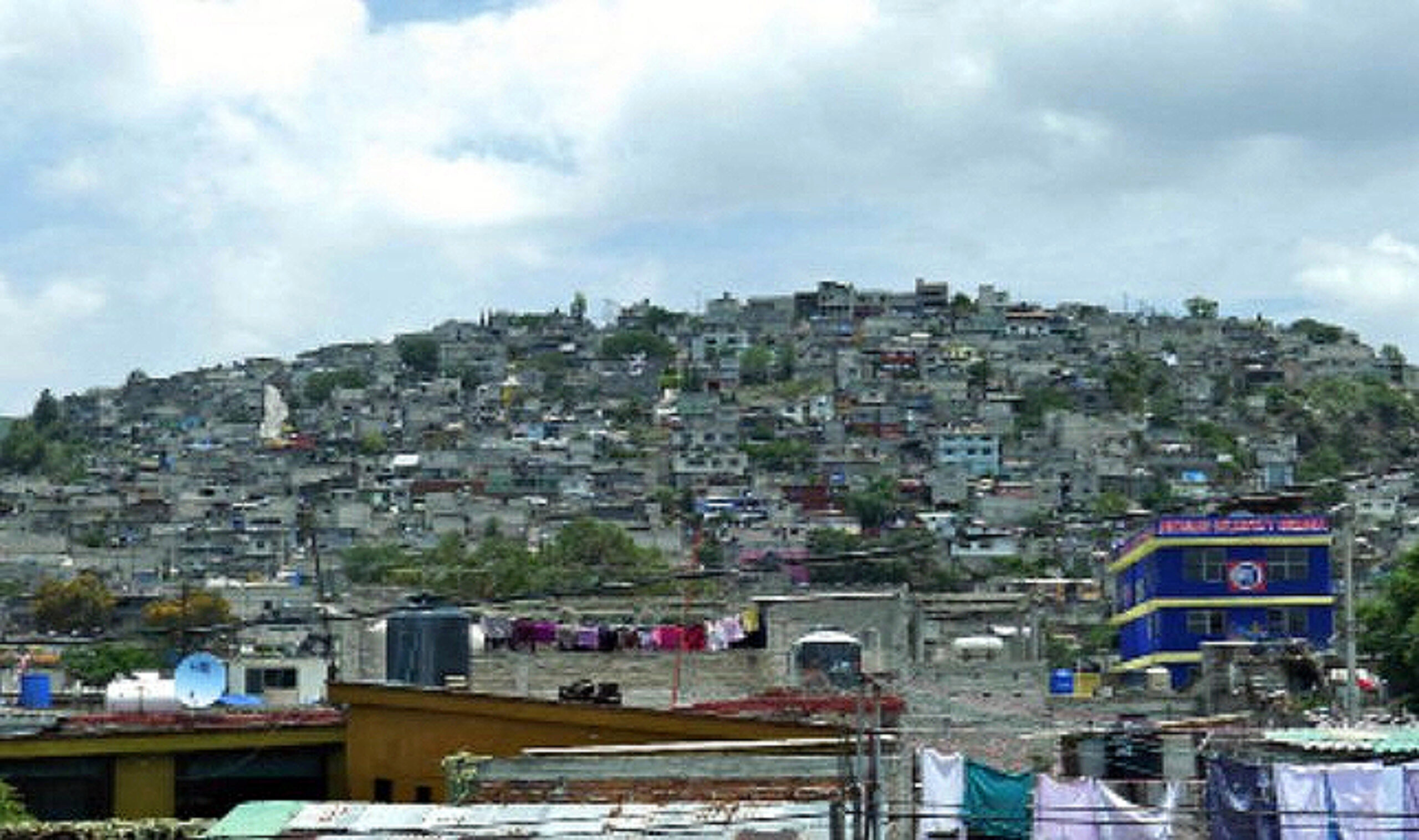
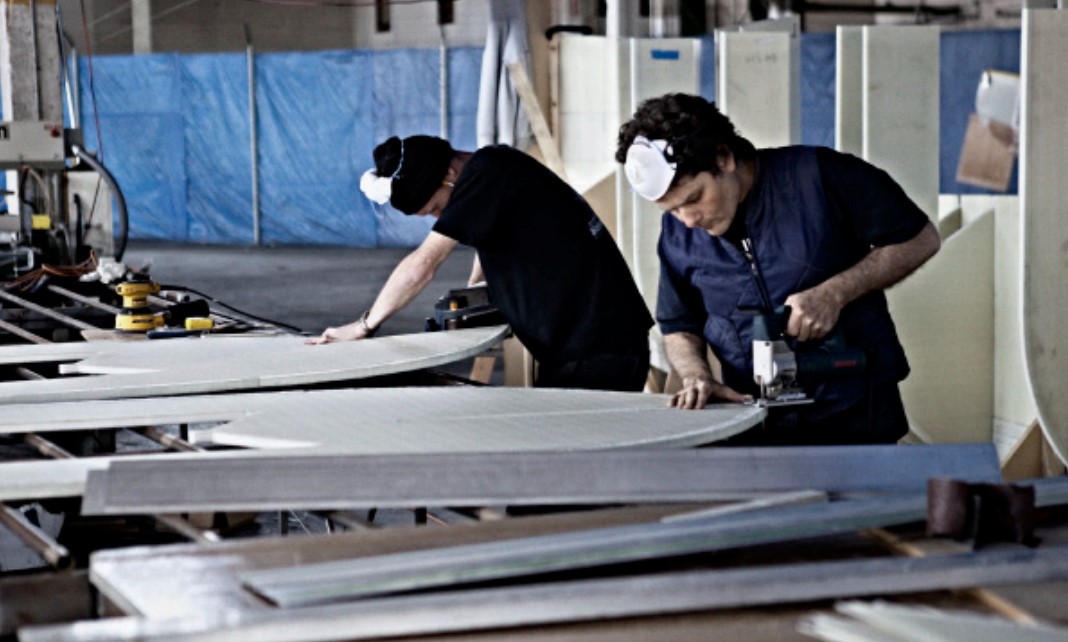
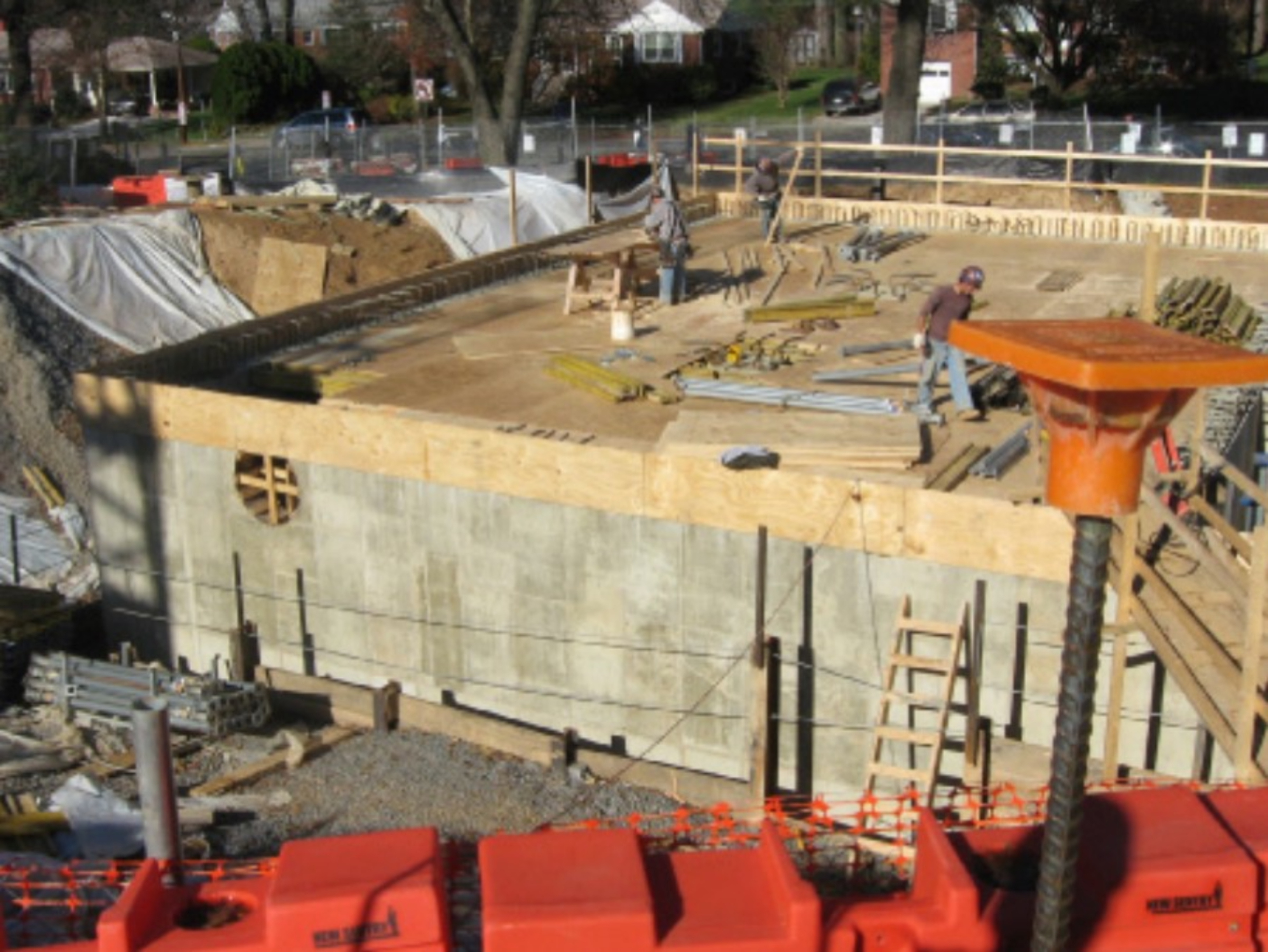
READ OR LEAVE A COMMENT